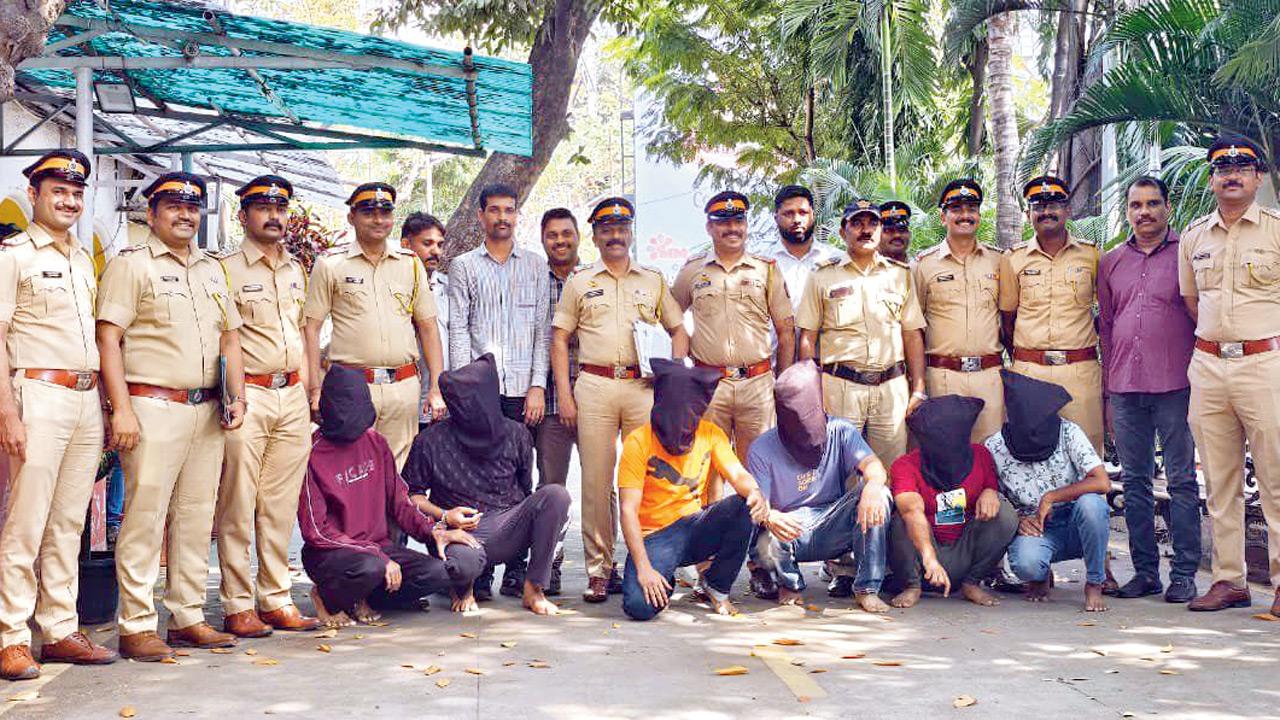In a major cybercrime breakthrough, Sewri’s Rafi Ahmed Kidwai Marg (RAK Marg) police have arrested six members of an interstate gang accused of running an elaborate ‘digital arrest’ racket that coerced victims into transferring large sums by impersonating officers from the National Investigation Agency (NIA) and the Anti-Terrorism Squad (ATS).
The case unfolded between 25 and 28 September. An investigation was launched based on a complaint filed by a victim who received repeated WhatsApp voice and video calls from fraudsters claiming he was being implicated under the Prevention of Money Laundering Act (PMLA). The callers, posing as senior investigating officers, threatened to freeze the man’s bank accounts and insisted funds be transferred “for verification.” Intimidated and fearing immediate arrest, the complainant wired Rs 70 lakh into multiple accounts over the three-day period.
Acting quickly on the victim’s complaint, the R.A.K. Marg police launched a technical probe that traced the digital footprint of the transactions and communication. Police tracked activity across multiple accounts and devices, leading to the freezing of 15 bank accounts and the recovery of Rs 10.5 lakh. Further digital analysis indicated the accused were operating from locations in Gujarat and Rajasthan, prompting three coordinated police teams to pursue the suspects interstate.
After persistent technical investigation and on-ground searches, during which the suspects frequently changed locations, police arrested six individuals identified as Suresh Kumar Maganlal Patel, 51; Musran Iqbalbhai Kumbhar, 30; Chirag Maheshbhai Chaudhary, 29; Ankit Kumar Maheshbhai Shah, 40; Vasudev alias Vivan Waljibhai Barot, 27; and Yuvraj alias Marco Laxman Singh Sikarwar, 34. Police said the accused had been active in cyber fraud for the past two to three years; the principal suspect, identified as Yuvraj alias Marco, had eluded capture until this operation.
According to the police, the gang specialises in procuring and supplying the logistical backbone that fuels online scams — SIM cards, current accounts and temporary mobile numbers — renting these to other fraudsters for periods ranging from six months to a year. That supply chain, police said, allows scammers to quickly set up convincing identities and to launder extorted funds through a web of accounts.
The investigation has also revealed a wide web of related complaints. So far 31 cyber complaints linked to the group have been registered across at least 13 states, including Maharashtra, Karnataka, Madhya Pradesh, Uttar Pradesh, Tamil Nadu, Jharkhand, Telangana, Gujarat, Delhi, Haryana, Kerala and West Bengal. Another similar incident came to light when a 68-year-old resident of Panvel received similar WhatsApp video calls on 25 September and was kept under “digital arrest” until 6 October, when relatives, following police guidance, intervened and prevented the transfer of R40 lakh.
When combined with the R70 lakh extorted from the Mumbai complainant, police estimate the total amount currently linked to the racket at over R1.1 crore, with the caveat that the final figure may rise as investigations into the 31 complaints conclude. The arrests were executed under the supervision of DCP (Zone IV) Ragasudha. On-the-ground work was led by ACP Sachin Kadam, Senior PI Vinod Tawde, PI Sandeep Aidale, Crime Detection Officers Govind Khaire and Mahesh Mohite, and Cyber Officer Yogesh Kharat, with assistance from the ATC team. Police have registered multiple charges under the Bharatiya Nyaya Sanhita and provisions of the Information Technology Act, 2000, and say further arrests are possible as the probe expands.
Cops issue advisory
Police have warned citizens to be sceptical of unsolicited calls demanding money or promising immediate arrest. “No investigating agency will ever seek money over the phone or WhatsApp for ‘verification’,” a senior officer said. Police have urged citizens to verify any such communication with their local police station before acting and to report suspicious calls immediately.







